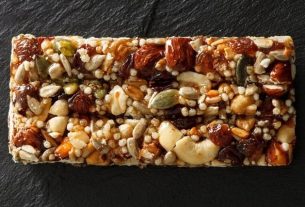When you are vomiting, it is important to prioritize the consumption of light, easily digestible foods, such as fruits, cooked vegetables, low-fat meats and drinks such as water, coconut water, teas and oral rehydration serums.
However, you should avoid eating or drinking until you control your vomiting, and after about an hour, you can try drinking small amounts of water. When tolerating water well, you can try to consume small volumes of food.
Vomiting is the forced exit of stomach contents through the mouth, which can be caused by situations such as pregnancy, gastroenteritis, chemotherapy or food poisoning, for example. Check out the main causes of vomiting.

What to eat
The foods recommended for when you are vomiting should be light and easily digestible, including:
- Fruits, such as banana, apple, orange melon, pear, lemon, papaya and peach;
- Cooked vegetablessuch as peas, carrots, pumpkin, chayote, zucchini and eggplant;
- Tuberssuch as potatoes, cassava, sweet potatoes, baroa potatoes and yams;
- Low-fat dairy, for people who tolerate it, such as skimmed milk, white cheese and fat-free yogurt;
- Low-fat proteinssuch as chicken, eggs, fish, turkey and tofu;
- Refined cerealssuch as white rice, white bread and white pasta;
- Drinks, such as water, coconut water, isotonic drinks or homemade serum;
- Vegetable drinks, such as soy, rice, almond or oat milk.
Consuming foods cold or at room temperature also helps reduce nausea and may reduce vomiting, as they have a less strong taste or smell.
Additionally, ginger, peppermint and fennel tea are some home remedies that can alleviate feelings of nausea or vomiting.
Read too: 11 home remedies for nausea and vomiting (and how to prepare)
When can you eat
You can eat about an hour after the last episode of vomiting, which is the time the stomach needs to recover.
After this period, it is recommended to consume clear liquids little by little, such as small amounts of water, oral rehydration salts, chicken soup, teas, diluted natural apple juice or liquid gelatin, for example.
Once the liquid diet is tolerated, it is possible to include small portions of food, always observing tolerance.
Foods that should be avoided
Foods that should be avoided when vomiting are:
- Alcoholic beverages, such as beer, wine, sparkling wine and cachaça;
- Caffeine, such as coffee, cola, black tea and chocolate;
- Very sweet foods, such as cakes, ice cream, cookies, jellies, candies or chocolates;
- condiments, such as pepper, cinnamon, curry, wasabi and chilli;
- Dairy products with a lot of fat, such as whole milk, full-fat yogurt, yellow cheeses and cream;
- Greasy food, such as fried foods, meat with a lot of fat, pizza or hamburgers;
- Whole grainssuch as brown rice, wholemeal bread and wholemeal pasta.
Food can be cooked, roasted or grilled, mashed or in small pieces, to facilitate digestion.
Furthermore, it is also advisable to avoid drinking liquids 30 minutes before, during and up to 3 minutes after meals, as it can fill the stomach too much, hindering adequate food intake.
When to go to the doctor
It is important to go to the doctor when experiencing severe vomiting or when this symptom lasts more than two days or when vomiting is accompanied by other symptoms, such as:
- Presence of blood;
- Dark or black stools;
- Fever;
- Muscle cramps;
- Strong headache;
- Stiffness in the neck;
In addition, it is also recommended to consult a clinician in the presence of dizziness, confusion, dark urine or absence of urine for more than 5 hours.
If you want to see a general practitioner, make an appointment in the region closest to you:
Taking care of your health has never been easier!

Sign up for our newsletter and stay up to date with exclusive news
that can transform your routine!
Warning: Undefined array key "title" in /home/storelat/public_html/wp-content/plugins/link-whisper-premium/templates/frontend/related-posts.php on line 12
Warning: Undefined array key "title_tag" in /home/storelat/public_html/wp-content/plugins/link-whisper-premium/templates/frontend/related-posts.php on line 13



